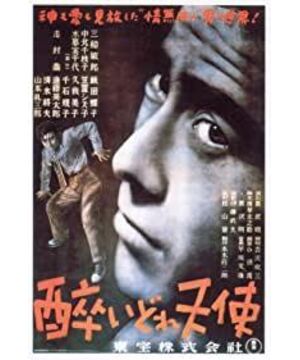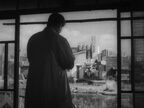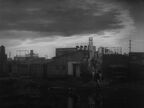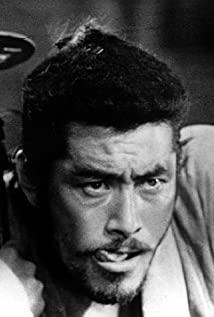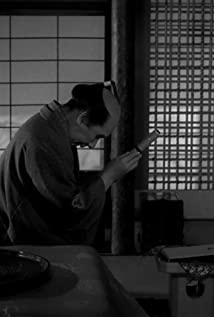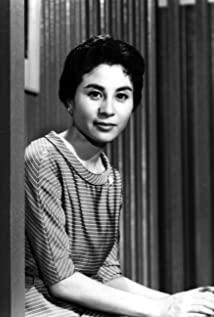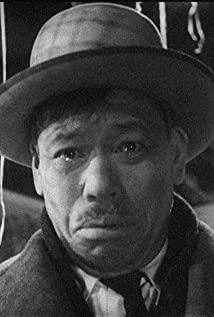From "The Oil of the Toad":
Talking about the film "Drunken Angel", we can't help but talk about the actor Toshiro Mifune.
In June 1946, Toho recruited actors in preparation for his post-war re-emergence. They put out a lot of advertisements to recruit new people, attracting a lot of people.
On the day of the interview and performance test, I was filming "I Have No Regrets About Youth" in the studio, so I couldn't attend. During the lunch break, when I walked out of the studio, Gao Feng Xiuzi stopped me and said:
"There's a good guy. But his behavior is a bit rude. It's a final decision if you won't be elected. Go and see."
I hurriedly finished lunch and went to the examination room. The door was wide open, and I couldn't help but be taken aback.
A young man is making a fuss inside.
He was like a beast that had just been captured, and he was furious. I couldn't help but stand in the doorway, stunned.
This man didn't really lose his temper, it was the chief examiner who was testing his acting skills and asked him to act out a person's anger.
After the performance, the man sat on the chair as if no one else was there, looked around at the examiners, and judging from his arrogant attitude, he seemed to say: do what you want.
I saw at a glance that this attitude was purely a means to cover up shame. Most examiners seem to think his attitude is unruly.
I felt that this man had a strange charm, so I was concerned about the result of the exam, so I ended the filming work early and went to the examination committee room to see what happened.
Although this young man was highly recommended by Mr. Yamamoto, according to the result of the vote, it was decided not to be hired.
I couldn't help shouting, "Wait a minute!"
The examination committee is composed of directors, photographers, producers, actors and other experts in all aspects of film production and trade union representatives, with equal numbers in both areas.
At that time, the power of trade unions was very strong, and trade union representatives had to participate in everything, and all decisions had to be voted on, even for actors, which was too much.
I've been brooding about this for a long time, and feel that even if this approach is just too much, it should be enough. So I blurted out, "Wait a minute!"
I said that to gain insight into the quality of an actor and to judge whether he has a future development requires the talent and experience of experts. Since you are an actor, if one vote from an expert who is closely related to the actor's acting career is regarded as having the same effect as one vote from a layman, it is tantamount to letting the gem dealer and the vegetable shop owner co-host the matter when appraising gems. . With regard to test actors, it should be taken into account when counting the votes that one vote for an expert in the subject is at least three or five votes for a layman. Therefore, I am determined to recount the votes as per my request above.
As soon as I said this, there was an immediate commotion in the exam board.
Some people shouted that it was anti-democratic, directed authoritarianism. But the committee members involved in making the film all raised their hands in favor, and some union representatives nodded in agreement. As a result, Mr. Yamamoto, the chairman of the examination committee, stood in the director's position and made a very positive speech on the quality and development prospects of this young man who has become a topic. Therefore, this young man who was almost eliminated was admitted.
This person is Toshiro Mifune. Mifune later played the most ferocious guy in the bank robbery group in "Top of the Silver Ridge" directed by Chikichi Taniguchi, and his acting skills were excellent, even surprising.
He then played a rogue boss in "The New Bastard Age" directed by Mr. Yamamoto, which is completely opposite to his acting skills in "Top of the Silver Ridge".
I took a fancy to Mifune's acting skills and promoted him to the protagonist in "The Drunken Angel".
Therefore, it would be wrong to say that the actor Mifune was discovered and cultivated by me.
It was Mr. Yamamoto who discovered the material of Mifune.
It is Mr. Taniguchi and Yamamoto who carved the material of Mifune into the actor Mifune.
I just saw this and let Mifune give full play to the talents of the actors in "The Drunken Angel".
Mifune is a unique and talented person in the Japanese film industry in the old days, and the speed of entering the film is even more outstanding.
Using an easy-to-understand example as an example, an ordinary actor needs 100% of his strength to perform, but Sanchuan can perform with 30% of his strength.
His movements are precise and neat. If an ordinary actor needs three movements to be able to express it, then three boats and one movement can be completed.
No matter what, he performed cleanly and neatly, with a sense of speed never seen before among actors of the past. Also, his delicacy and sensitivity are amazing.
Although these words are all praise, don't think that this is to praise him, because the truth is like this, I can only tell the truth. If I can barely pick on his shortcomings, it is that there are some problems with pronunciation. When I use a microphone to record, I can't hear clearly in some places.
All in all, I rarely admire a certain actor, only Mifune.
However, this also made it difficult for the director. Mifune, who plays the role of a rogue, is very charming, and it is difficult to balance with the doctor (played by Shimura Joe) who is his opposite.
This will inevitably make the work distorted in structure.
If you want to achieve a balance, you have to deliberately suppress the rare charm of Mifune, which is a pity. Mifune's charisma is a concrete manifestation of his innately strong personality. So, there's no way to diminish his charisma in the movie in the slightest, unless he isn't allowed to play. I'm both delighted and puzzled by Mifune's charm.
The work "Drunken Angel" was born in this dilemma. The structure is indeed a little out of shape, and the theme is also vague in some places. However, after fighting with Mifune's outstanding personality, I also felt like I was doing the job of jumping through a solid wall.
Shimura, who played the doctor in "The Drunken Angel", can score 90 points, but his opponent, Mifune, can score 120 points, which is a bit embarrassing.
The acting skills of Reisaburo Yamamoto, who has passed away, are also impeccable. This is the first time I've seen Yamamoto's sharp eyes. For a period of time at the beginning, I was terrified to talk face to face with him. But as soon as I spoke, I found that he was a very kind person.
I started working with Fumio Hayasaka from this film. After that, until Hayasaka's death, he composed the music for my films and became my best friend. Regarding Hayasaka, I want to write more about it later.
Also, while filming this work, my father passed away.
I got a telegram that my father was seriously ill, but the release date was looming and I couldn't stop filming and head to Akita.
The day I received the telegram of my father's death, I went to Shinjuku alone. I drank, but the more I drank, the more depressed I became.
I walked aimlessly through the crowds of Shinjuku with unresolved grief. At this time, "Cuckoo Waltz" came from a loudspeaker somewhere.
The cheerful music made my melancholy mood even darker and more unbearable. I quickened my pace as if trying to escape the music.
In "The Drunken Angel", there is a scene where the rogue played by Mifune wanders the black market with a gloomy belly.
When we were discussing dubbing this film, I told Hayasaka to add "Cuckoo Waltz" to the scene of Mifune walking the black market.
When Hayasaka heard this, he looked at me in surprise, but immediately smiled and said, "Counterpoint?"
I replied, "Well, a sniper."
The word "sniper" is a code word between the two of us, because we saw the excellent use of the counterpoint method between images and music in the Soviet film "Sniper", so we call this method of film soundtrack "sniper" for short. hand".
And Hayasaka and I have agreed to try it out in a certain scene in "The Drunken Angel" to see how it works.
We did an experiment on the day of the dub.
The bleak and bleak image of a rogue roaming the streets of the black market is accompanied by the "Cuckoo Waltz" coming out of a loudspeaker. The upbeat music made a startling contrast to the rogue's brooding gloom.
Hayasaka looked at me and smiled smugly.
The rogue played by Mifune entered the tavern, and as soon as he opened the sliding door of the tavern, the music of "Cuckoo Waltz" stopped abruptly.
Hayasaka looked at me in surprise and said:
"You edited by the length of the piece?"
"No, it's not."
I answered this, but I was not surprised even myself.
I calculated the counterpoint effect of the scene and the song, but not the length of the scene and the song. The result is exactly the same length, what is going on?
Probably after I received the news of my father's death, when I was wandering the streets of Shinjuku, just like the rogue played by Mifune, full of sorrow and ignorance, listening to the "Cuckoo Waltz", I subconsciously calculated the song in my mind. length.
Since then, there have been several similar incidents. At any time, it is instinctively associated with work, and this habit is close to previous life karma.
It can be said that the director's line of work has been done to this extent, and it can be said that it is completely the cause and effect of the previous life.
View more about Drunken Angel reviews


